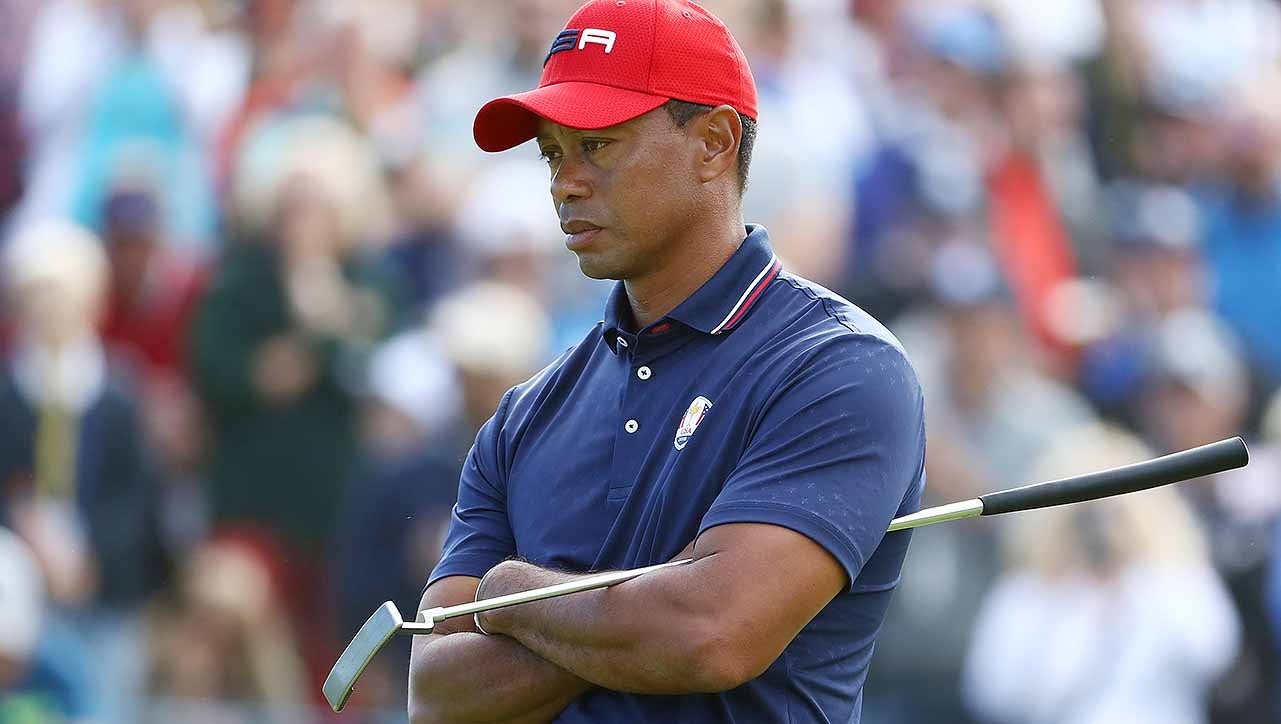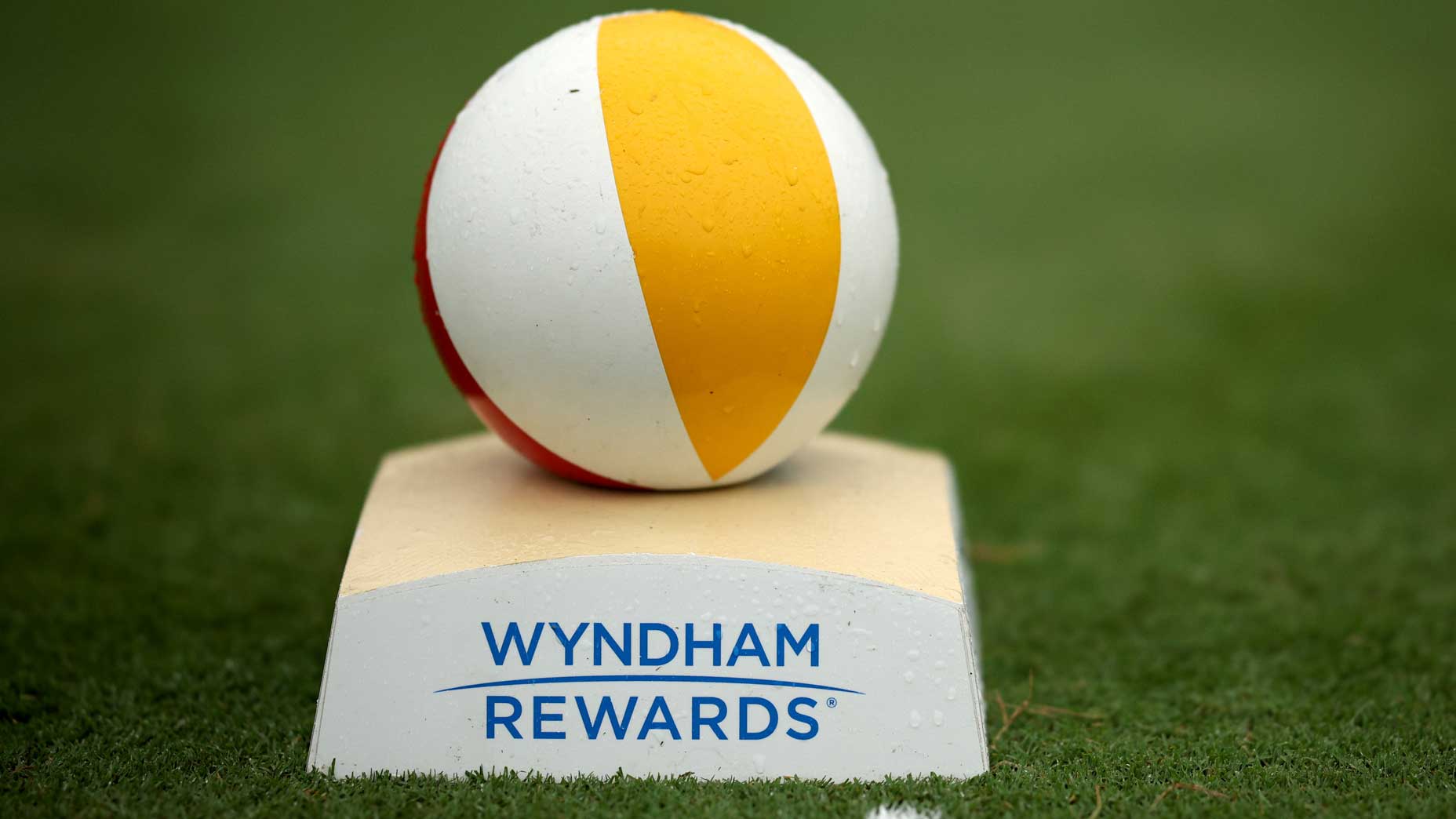SAINT-QUENTIN-EN-YVELINES, France — If you saw this coming, this bit of golfing “American carnage,” to borrow a phrase from Jan. 20, you might send a to-whom-it-may-concern note, with all your good insights, to this address:
Task Force
c/o PGA of America Headquarters
100 Avenue of the Champions
Palm Beach Gardens, Fla.
33410
It’ll get read.
This was the second team formed in the image of the PGA’s Ryder Cup Task Force, assembled quickly after the last American road loss, in 2014. That was the Tom Watson team, one that lives in infamy, not just for being on the short end of a lopsided defeat, but because of the call-to-action remarks that Phil Mickelson made before the fog of war had lifted. For now — until the pendulum swings again — Watson is the last great patriarchal, imperial, macho American Ryder Cup captain. The conclusion of the Task Force was that the American teams had to be more player-driven. So if you want to assign blame for this American loss — that’s kind of a nasty hobby, isn’t it? — blame the players.
This will seem counterintuitive, but you can even extend that logic to the four so-called captain’s picks. Yes, Jim Furyk, the American captain, signed off on the picks, after consulting with the eight players who made it on points. Except for maybe the selection of the slumping Phil Mickelson, it was hard to find fault with any of them. The other three were Tiger Woods, Bryson DeChambeau and Tony Finau. Finau went 2-1-0. Nice! But you best be sitting for this next part: Woods, listless at times and understandably exhausted, went 0-4. (Three sessions might have been plenty for him. He has played seven times in the last nine weeks, at age 42, with a fused back.) Mickelson, 48, played only twice, and he lost twice. DeChambeau, winner of two of four FedEx playoff events, went 0-3.
Would Xander Schauffele, in Mickelson’s place, have lit up the board? We’ll never know. Ryder Cup golf doesn’t have a WAR (wins above replacement) stat. Can’t we just lock Brandel Chamblee and Mark Broadie in a room until they work this out?

It’s too bad Kevin Kisner didn’t make the team. This was a perfect course for him. Golf really is — danger, danger: cliché en route — about horses for courses. It’s no accident that Bubba Watson has won twice at Augusta National — big and wide with super-fast greens — and went 1-2 here at Le Golf National, a short course with greens that are flatish and slow, by PGA Tour standards. The European roster was filled with players who play the world, pretty much.
In 2016, when Davis Love was the U.S. captain, the course, Hazeltine National, was a perfect fit for bombs-away American golf and the European roster was short on firepower. But this time was nothing like last time, and it has now been 27 years since the U.S. has won a Ryder Cup in Europe.
Yes, this American team was loaded with bold-face golf names: Brooks Koepka, Justin Thomas, Tiger Woods, Dustin Johnson, Patrick Reed, Bryson DeChambeau, Webb Simpson, Bubba Watson. All eight won in 2018. That’s some nucleus. The only thing keeping Rickie Fowler or Jordan Spieth off that list is that they did not win in 2018.
But Le Golf National proved to be nothing like Hazeltine, and playing in the suburbs of Paris on a course with ever-lurking trouble proved to be nothing like playing a big brawny no-rough course in the Minnesota farmland. LGN is a choose-your-poison course: a series of murky ponds, or lush long bright-green rough. You can have it, and the French do. The European tour has played the French Open on this course since 1991. The European players, almost to a man, knew it intimately. You could say that of only a couple of the American players: Brooks Koepka, who played the course during his stint in Europe, and Justin Thomas, who played in this year’s French Open. Koepka and Thomas went a combined 5-3-1 over the three days. Coincidence? We think not!
As bad as this loss was for the Americans, it was a stunning, surprising and absolutely unqualified success for the Europeans. The final score — hosts 17.5, visitors 10.5 — doesn’t begin to tell the depth of this American defeat. Winning does not always come with joy and amiability, but it did this time for the Europeans, who seem to take — and this in contrast to the Americans — the Ryder Cup as a competition very seriously but themselves less so.
The pairing of Tommy Fleetwood of England and Francesco Molinari of Italy was just a delight to watch, for the quality of their golf and for their contrasting swings and personalities. Furyk spoke last week of how impressed he was by an old European pairing, Luke Donald and Sergio Garcia, the joining of a stoical player and an exuberant one. Fleetwood (outgoing, plus the flowing hair) and Molinari (self-contained, an undertaker from central casting) followed in that tradition. They played together four times — twice against the pairing of Woods and Reed — and won four times. Molinari then won his singles match on Sunday to become the fourth player to finish a Ryder Cup with a 5-0 record. The other three were all Americans: Arnold Palmer, Gardner Dickinson and Larry Nelson.
“We need to spend more time together, I think,” Molinari said at the winners’ press conference, his accented English hinting at his education, sophistication and intelligence.
“I feel so far away,” Fleetwood said, sitting at a dais, separated from his partner by eight celebrating players.
One thing you can say with certainty is that the American loss was not due to lack of effort or preparation. If anything, the Americans tried too hard. If anything, there might have been too much obsession with the pursuit of perfection. Perfect food and perfect clothes. Perfect hotels with perfect mattresses. Perfect statistical analysis, weather forecasting, practice sessions.
“It’s tough over here,” Patrick Reed said, and he was speaking on Saturday, when the Americans trailed by a mere four points. (That’s a lot.) “The courses are different, the weather is different, the crowds are different.”
He was one of the few American bright spots on that 2014 American team. His Friday-Saturday partner that year, and again in 2016, was Jordan Spieth. As partners in those two Ryder Cups, they won four matches, lost one and tied two. But Furyk paired Reed with Woods. Woods surely signed off on that, but Reed’s crazy zeal was never on display, playing with his boyhood hero. You could examine two dozen other decisions like that, made with good intentions that did not work out. Spieth, by the way, played with Thomas twice on Friday and twice on Saturday, and they went 3-1. There’s always a variety of ways to look at these things.
The Ryder Cup is, of course, a match-play event and match-play golf, among world-class golfers, is about making birdies, especially in the two sessions of better-ball. Over the course of the three days, the Europeans made more birdies than the Americans. Defense, in Ryder Cup play, is to make a birdie on top of the other guy’s birdie. It changes the crowd dynamic and the mood of pretty much everything. There wasn’t much of that over here.
Week in and week out, on the PGA Tour, the secret sauce of success is to smash a driver in the fairway or the genial rough, hit some sort of lofted iron directly at the pin on an overwatered green and make sure your putt reaches the hole. It’s a stroke-play TV show. The Ryder Cup is a TV show of a different kind. At Le Golf National, you took out your driver at your own peril. Rough and water, rough and water.

“This course,” Tom Lehman, a former Ryder Cup captain himself, “isn’t like a modern PGA Tour course. It’s more like the courses we played years ago. It’s a finesse course. You have to credit Europe for selecting a course and setting it up that’s perfect for them.”
This American team rode the American theme hard. The players wore pinstriped trousers on Saturday, looking like Wall Street bankers from the greed-is-good days. The WAGs that day wore mock U.S. Army jackets. American Ryder Cup golf is taking a page from football — American football: plan and plan and plan, then execute. Golf is more like European football. Plans fall apart. Golf requires flexibility in every sense of the word. There wasn’t much evidence of that. Ryder Cup golf is more like British Open golf, and less like U.S. Open golf.
Golf’s a mystery, and this result cannot be easily explained. But the very strangeness of the sport — an outdoor sport played on an irregular field under trying and changing conditions by personalities with ever-changing moods — was beautifully captured by the three days, by Molinari’s successes, by Tiger’s futility, by Jim Furyk’s precision and careful speech, by European captain Thomas Bjorn’s pot belly and three-day stubble.
During the Americans’ post-event press conference, a eulogy for what could have been, you could hear, through an open door, the heinous “Ole” sing-song chant from some distant place, beside the space-age clubhouse here. Woods stared straight ahead through it, completely devoid of emotion or expression. DeChambeau scratched the back of his head. Dustin Johnson and Jordan Spieth chatted amongst themselves. The sun was setting, spectacularly. Somebody had the good sense to shut the door.
Michael Bamberger may be reached at mbamberger0224@aol.com.








